MIDDLE EAST
LATEST
-
15 hours ago in News Bulletins
-
5 hours ago in News Bulletins
-
6 hours ago in News Bulletins
-
6 hours ago in Reports
-
6 hours ago in Reports
-
6 hours ago in Reports
-
6 hours ago in Middle East
-
7 hours ago in News Bulletins
-
9 hours ago in Middle East
-
9 hours ago in Analysis
-
15 hours ago in News Bulletins
ISIS stones 2 ‘gay men’ to death in Syria: observer
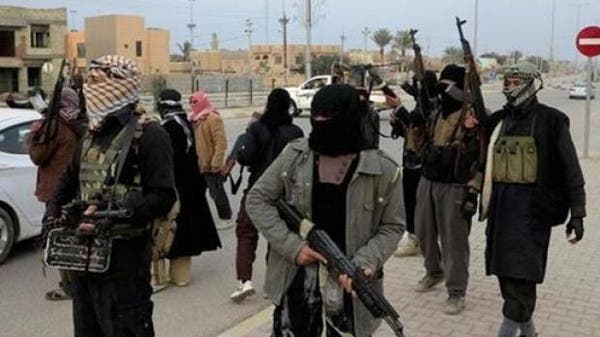
The United Nations said this month the ISIS had carried out several
executions by stoning of women in Syria it accused of adultery. (File
photo: Reuters)
By AFP
| Beirut
Tuesday, 25 November 2014
The Islamic State of Iraq and Syria (ISIS) group stoned two men to
death in Syria Tuesday after claiming they were gay, a monitor said, in
the militant organization’s first executions for alleged homosexuality.Tuesday, 25 November 2014
“The ISIS today stoned to death a man that it said was gay,” the Syrian Observatory for Human Rights said, adding that the victim was around 20 years old.
He was killed in Mayadeen in the eastern province of Deir Ezzor, near the border with Iraq.
The Britain-based Observatory said ISIS claimed it found videos on his mobile phone showing him “practicing indecent acts with males.”
In a separate incident on Tuesday, an 18-year-old was also stoned to death in Deir Ezzor city after the group said he was gay, the Observatory said.
Activists on social media said that the dead men were opponents of ISIS and that the group had used the allegation as a pretext to kill them.
The United Nations said this month the ISIS had carried out several executions by stoning of women in Syria it accused of adultery.
The militants proclaimed a “caliphate” in June after seizing swathes of Iraq and Syria.
Activists say ISIS carries out regular public executions -- often beheadings -- in areas it controls.
Last Update: Tuesday, 25 November 2014 KSA 19:45 - GMT 16:45
SHOW COMMENTS
Sudan asks UNAMID to shut human rights office in Khartoum

Women wait to get water at Tabit village in North Darfur November 20, 2014. (Reuters)
AFP, Khartoum
Wednesday, 26 November 2014
The U.N.-African Union mission in Darfur said Tuesday that Sudan
has asked it to close its human rights office in Khartoum, as tensions
rise over investigations into an alleged mass rape.Wednesday, 26 November 2014
The mission’s attempts to investigate charges that government troops raped 200 women and girls in the Darfur village of Tabit last month have angered Khartoum.
UNAMID said it received a formal request “from the Government of Sudan to close the mission’s human rights office in Khartoum on November 23. The letter mentioned that it was a new office”.
The mission “has always had a liaison office composed of a number of sections including the human rights section,” its press department told AFP.
It said it was “working to clarify” the situation with the government.
Sudan’s foreign ministry confirmed it had asked the office to close, saying its role was “outside of their mandate”.
But spokesman Yousif al-Kordofani said the ministry and UNAMID had exchanged letters about the issue before the Tabit affair.
The UN mission was set up in 2007 to protect civilians and secure aid to Darfur, which has been wracked by conflict since 2003 when ethnic insurgents rebelled against the government.
Relations between the mission and Khartoum have soured over UNAMID’s attempts to investigate a report from a local news website that soldiers raped 200 women and girls in Tabit on October 31.
When UNAMID visited Tabit it found no evidence of rapes but an internal report said Sudanese soldiers had intimidated villagers to quash the allegations as the peacekeepers investigated.
Khartoum summoned UNAMID’s acting head and said last week it had asked the mission to form an “exit strategy”.
The foreign ministry denied Tuesday that the move was motivated by the alleged attack in Tabit, but had been discussed for years.
But in the same statement, Abdullah al-Azraq, the under-secretary for the foreign minister, accused UNAMID forces of “large and worrying abuses and violations” in Darfur during the years of its mandate, including rape.
“We observed incidents in which UNAMID soldiers raped women and the mission took no measures to hold them accountable and did not make them leave the country, which raised tensions,” Azraq said in the statement.
He did not elaborate any further on the allegation, and the U.N.-AU mission did not immediately comment.
The conflict in vast Darfur region of western Sudan has killed more than 300,000 people and displaced two million, the U.N. says.
President Omar al-Bashir is wanted by the International Criminal Court for alleged war crimes in the region.
Last Update: Wednesday, 26 November 2014 KSA 00:01 - GMT 21:01
TOPICS
SHOW COMMENTS
Syrian govt bombs ISIS stronghold of Raqqa, 63 killed
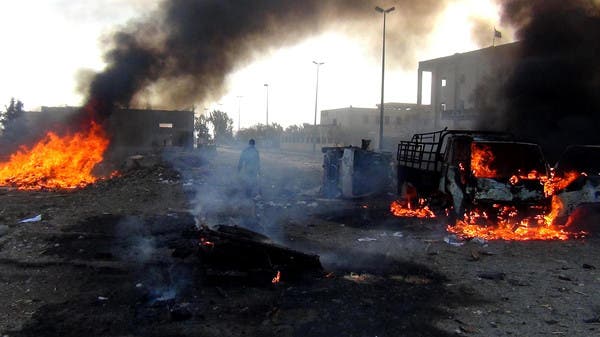
A man walks amidst smoke and fire following a reportedly air strike
by Syrian government forces in the ISIS group controlled Syrian city of
Raqa, on November 25. 2014. (AFP)
By Staff Writer
| Al Arabiya News
Tuesday, 25 November 2014
More than 63 people were killed in militant-held Syrian city of
Raqqa after Syria regime war planes struck the militant group’s
stronghold on Tuesday, an observer group monitoring the war said.Tuesday, 25 November 2014
Half of those killed were civilians, Reuters news agency reported adding that Syrian government officials were not immediately available to comment.
Rami Abdulrahman, who runs the Britain-based Observatory, said 10 war planes struck at least 10 times in Raqqa, a stronghold of the ultra-hardline group Islamic State of Iraq and Syria (ISIS).
"The majority of the strikes were in the eastern part of the city," Abdulrahman said. "At least 36 of those killed are civilians. As for the rest, we are not sure yet if they were fighters."
According to the Associated Press, the Local Coordination Committees said the strikes killed at least 70 people.
Additionally, another Raqqa-based collective called Raqqa is Being Silently Slaughtered said it documented over 80 deaths.
ISIS, which has seized wide expanses of territory in Iraq and Syria, drove the last Syrian government forces out of Raqqa province in late August. Its fighters seized an air base then, capturing and later executing scores of Syrian soldiers.
An ISIS fighter in the province confirmed that the government carried out the air strikes, which he said killed at least 70 people, Reuters reported.
The Syrian air force has increased its strikes across Syria since a U.S.-led coalition started attacking Islamic State positions inside Syria in September.
Analysts say the increase could be because the Syrian military wants to weaken rebel groups before they get training and equipment promised by the United States.
Last Update: Wednesday, 26 November 2014 KSA 23:53 - GMT 20:53
SHOW COMMENTS
ISIS battles Iraqi forces near Baiji refinery

Iraqi Shiite fighters hold an Islamist State flag, which they pulled
down from the frontlines after taking control of Saadiya in Diyala
province from Islamist State militants, November 24, 2014. (Reuters)
Staff writer, Al Arabiya News
Tuesday, 25 November 2014
Islamic State of Iraq and Syria (ISIS) insurgents battled with
Iraqi government forces in the center of Baiji on Tuesday - around 200km
north of the capital Baghdad - a week after the army broke their
prolonged siege of the country's largest oil refinery just outside the
town, according to an army officer and residents.Tuesday, 25 November 2014
The fresh spate of fighting in Baiji by ISIS, who control large swathes of territory in Iraq and Syria, appeared to be aimed at reimposing that stranglehold around the large oil refinery facility four kilometers to the north.
ISIS fighters were present in four of Baiji's 12 neighborhoods, as well as areas on the perimeter of the sprawling oil complex. However, the army controlled its southern approaches, preventing insurgents from surrounding it, according to a Baiji resident who toured the area.
On Monday an ISIS video circulated on the Internet showing its fighters denying that they had been driven out of Baiji, and what purported to be two suicide truck bombings targeting the refinery defenses.
"Yes, they infiltrated some areas," one of the speakers said, referring to the Iraqi security forces. "But, God willing, either they will withdraw or they will be exterminated."
One resident of the town some 200 kilometers north of Baghdad said ISIS gunmen launched an attack on Monday night in the center of Baiji, advancing into the town's Asri district. There had also been fighting in the Naft and Kahraba neighborhoods.
Around the refinery, ISIS insurgents still held a housing complex on its western edge and were digging trenches in the Makhmour hills overlooking the installation from the north, despite coming under fire from helicopters, the resident said.
To the east, he said, insurgents could be seen crossing the nearby Tigris river by boat.
ISIS seized Baiji and surrounded the refinery during a June offensive when it swept south towards the capital Baghdad, capturing cities, farmlands and oilfields and meeting virtually no resistance from Iraq government forces.
Shiite militias and Kurdish Peshmerga, backed by U.S.-led air strikes since August, have helped contain the radical Sunni insurgents and pushed them back in some provinces. But they have continued to make gains in the western Sunni province of Anbar.
(With Reuters)
Last Update: Wednesday, 26 November 2014 KSA 00:50 - GMT 21:50
TOPICS
SHOW COMMENTS
France pushing for ‘safe zones’ in Syria

Aleppo has been divided into government- and rebel-held areas since an insurgent offensive in mid-2012. (AFP)
Agence France Presse, Paris
Tuesday, 25 November 2014
Paris is pushing for “safe zones” to be set up in Syria where
citizens would be out of reach of regime forces and militants from the
Islamic State of Iraq and Syria (ISIS), Foreign Minister Laurent Fabius
said Tuesday.Tuesday, 25 November 2014
Fabius said that the country was working alongside U.N. envoy Staffan de Mistura who has proposed a “freeze” in fighting in Syria’s second city of Aleppo.
De Mistura wants the proposed cease-fire zones to allow for aid deliveries and lay the groundwork for peace talks in the three-and-a-half-year conflict that has left 195,000 people dead.
“We are working with the U.N. envoy ... to try and save Aleppo and on the other hand to create safe zones where it is not possible for [President] Bashar al-Assad’s aircraft and Daesh [ISIS] to pursue Syrians,” said Fabius.
“There are quite a few people to convince, the Americans of course,” he added.
“Abandoning Aleppo would be to condemn Syria and its neighbors to years, and I mean years, of chaos, with terrible human consequences.”
Aleppo has been divided into government- and rebel-held areas since an insurgent offensive in mid-2012.
In recent months, government forces have advanced around the outskirts of the eastern portion of the city that is under rebel control, threatening to encircle it completely.
Syria’s main opposition National Coalition on Monday urged de Mistura to include “refuge zones” on the borders with Jordan, Lebanon and Turkey in his plans.
France is involved in strikes against ISIS militants in Iraq but has so far kept out of the air campaign in neighboring Syria, where it has hoped to support moderate rebels without resorting to military action that could help the Assad regime.
Last Update: Tuesday, 25 November 2014 KSA 14:37 - GMT 11:37
SHOW COMMENTS
Khamenei says West will not defeat Iran
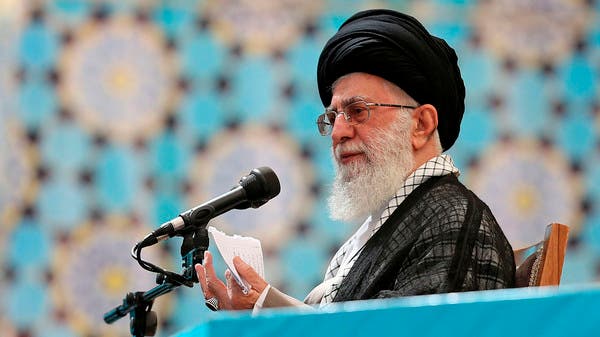
Khamenei has so far backed the nuclear talks and his reference to
the future indicates that the extension of the talks would have his
approval as well. (File Photo: Reuters)
By Staff writer
| Al Arabiya News
Tuesday, 25 November 2014
Western powers will not be able to bring Iran to its knees in
nuclear negotiations, the Associated Press quoted the website of Iran’s
Supreme Leader Ayatollah Ali Khamenei as saying Tuesday.Tuesday, 25 November 2014
"On the nuclear issue, the United States and European colonialist countries gathered and applied their entire efforts to bring the Islamic Republic to its knees but they could not and they will not," Khamenei said, speaking to a group of clerics.
The remarks were the first by the Iranian leader. He has final say on all state matters.
His comments come a day after Iran and major global powers agreed to decide by March 1 what needs to be done and on what kind of schedule. A final agreement is meant to follow four months later.
Khamenei has so far backed the nuclear talks and his reference to the future indicates that the extension of the talks would have his approval as well, the AP said.
Earlier on Monday and in a nationwide broadcast, Iran's President Hassan Rowhani told his nation that it "has achieved a significant victory" and that talks would “lead to a deal, sooner or later."
Rowhani also said many gaps in the talks "have been eliminated."
But he also vowed that Iran would not relinquish its right to nuclear capability.
The United States, Britain, France, Russia, China and Germany, have engaged in intensive negotiations over Iran's nuclear program. Tehran has denied its nuclear research has any sort of military dimension.
(With AP)
Last Update: Tuesday, 25 November 2014 KSA 14:06 - GMT 11:06
TOPICS
SHOW COMMENTS

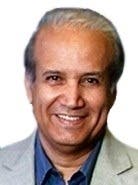


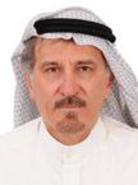













No comments:
Post a Comment